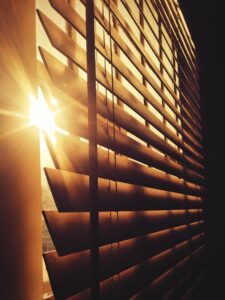Indoor Air Quality and Seniors

Elderly Care in Old Bridge NJ: Indoor Air Quality and Seniors
It’s easy to pay attention to outdoor air quality, especially for seniors and family caregivers that live in a metro area. However, indoor air quality can impact an elderly person’s life more significantly than what is outside. In many cases, the air inside an elderly person’s home is 2 to 10 times more polluted. A senior that is exposed to such a concentration of different components in the air can develop health complications.
How Can Indoor Air Get Polluted?
It’s easy to assume that windows and walls are enough to keep out pollutants, but the reality is that many outside elements are brought in. Pollen and particles enter the home on clothes, hair, new furniture and pets. Other air pollutants are generated from inside, such as dust mites, dust mite feces, pet and human dander, skin cells, bacteria, dust, mold, smoke particles and volatile organic compounds. Elderly people are particularly sensitive to poor indoor air quality and can experience a number of health problems as a result.
How Indoor Air Quality Affects Seniors
Poor air quality is hardest on people with asthma, children and the elderly. That’s because these groups are the least resistant to airborne allergens and irritants. Elderly people often have weaker immune systems as well, making it harder for their bodies to fight back. Health issues can include upper respiratory problems, irritated eyes, nausea, nosebleeds, and asthma. Poor air quality can also complicate existing health issues and make them worse. To keep seniors healthier, indoor air quality should be part of a comprehensive elderly care plan.
Ways to Boost Indoor Air Quality
Good air quality is worth the time and effort because it can have a very positive impact, not just on the elderly but everyone else that lives in the home or visits. One thing to do to keep indoor air quality high is to try to catch pollutants from coming inside in the first place. Placing large mats next to every external door will capture a lot from people’s shoes. Running the air conditioner instead of opening windows on high pollution days can also help keep pollens and smog particles outside where they belong.
Another important thing to do is to vacuum regularly, at least twice per week. A high quality vacuum with strong suction and a filter can pick up all kinds of irritants in the floor without putting them back out into the air. Don’t forget to vacuum furniture, along the walls and the stairs. Likewise, regular mopping for hard-surface floors will pick up allergens and dust as well.
Other things that family caregivers can do is eliminate cigarette smoking indoors, install an electric air purifier in one or more rooms, and stop using air fresheners that emit chemicals into the air. House plants like ferns or spider plants are natural air purifiers and boost air quality. Choosing fragrance-free cleaners, deodorants, hair spray, furniture polish and laundry products can also reduce air pollution. Family caregivers can also call a professional to get the home tested for mold, radon and dander.
When it comes to elderly care, there are plenty of things to clean and care for to keep an elderly loved one healthy and happy. But how many people ever think about cleaning the air. Good air quality indoors will certainly enhance the health and well-being of elderly loved ones.
Source:
http://www.webmd.com/lung/features/12-ways-to-improve-indoor-air-quality#3
If you or an aging loved one are considering elderly care in Old Bridge, NJ, please contact the caring staff at Care Street Home Care of New Brunswick today. Call (732) 607-8870.
- Encouraging Your Aging Parent to be Healthier - March 7, 2019
- What Can I Serve Seniors with New Dentures? - March 1, 2019
- Join Us for an Engaging Dinner and CEU Presentation! - February 15, 2019
